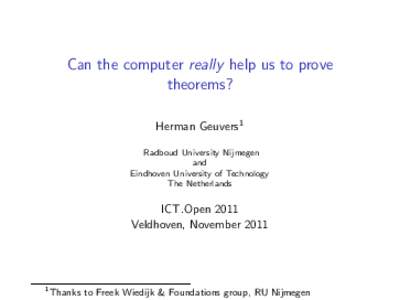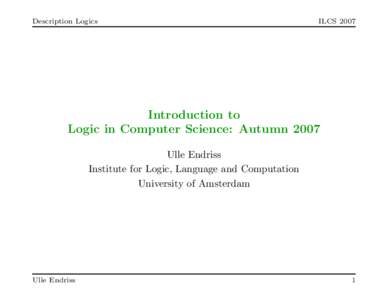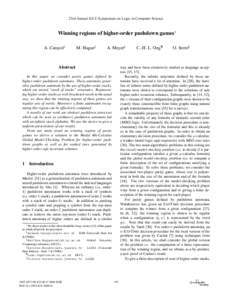<--- Back to Details
| First Page | Document Content | |
|---|---|---|
 Date: 2011-11-17 12:13:56Proof assistants Automated theorem proving Logic in computer science Type theory Automath Logic for Computable Functions Nqthm Proof theory ACL2 Mathematical proof Andrzej Trybulec Isabelle |
Add to Reading List |
 Can the computer really help us to prove theorems?
Can the computer really help us to prove theorems?



